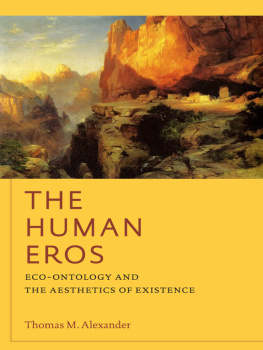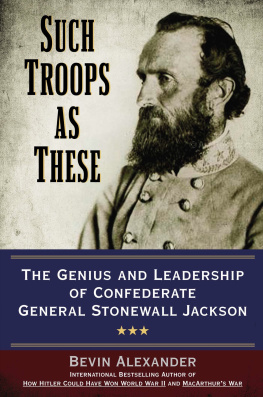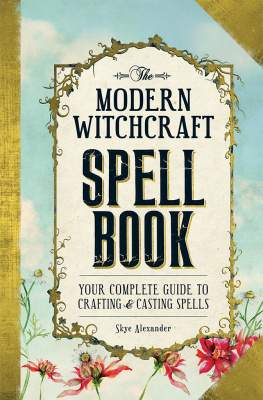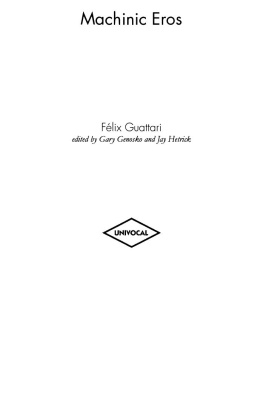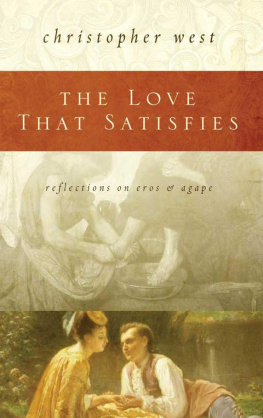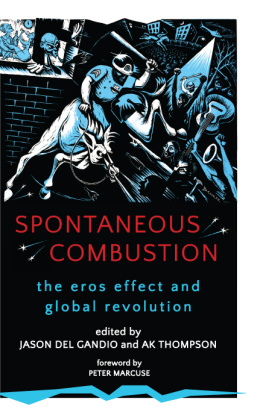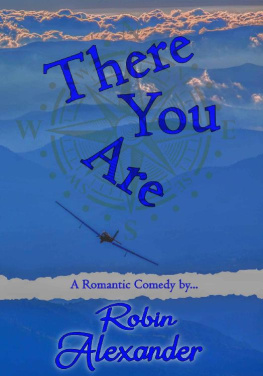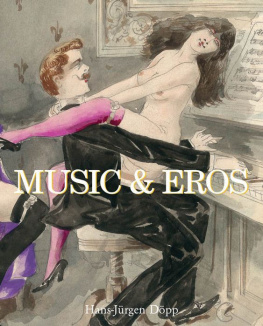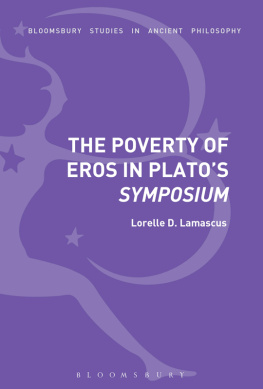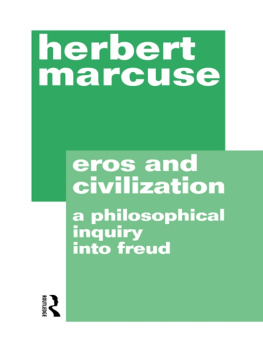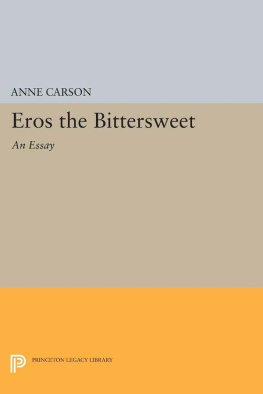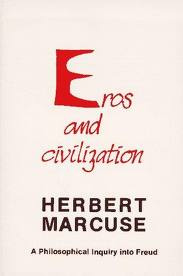THE HUMAN EROS
AMERICAN PHILOSOPHY
Douglas R. Anderson and Jude Jones, series editors
THE HUMAN EROS
Eco-ontology and the Aesthetics of Existence
THOMAS M. ALEXANDER
FORDHAM UNIVERSITY PRESS NEW WORK 2013
Copyright 2013 Fordham University Press
All rights reserved. No part of this publication may be reproduced, stored in a retrieval system, or transmitted in any form or by any meanselectronic, mechanical, photocopy, recording, or any otherexcept for brief quotations in printed reviews, without the prior permission of the publisher.
Fordham University Press has no responsibility for the persistence or accuracy of URLs for external or third-party Internet websites referred to in this publication and does not guarantee that any content on such websites is, or will remain, accurate or appropriate.
Fordham University Press also publishes its books in a variety of electronic formats. Some content that appears in print may not be available in electronic books.
Library of Congress Cataloging-in-Publication Data
Alexander, Thomas M., 1952
The human eros : eco-ontology and the aesthetics of existence /
Thomas Alexander. 1st ed.
p. cm. (American philosophy)
Includes bibliographical references and index.
ISBN 978-0-8232-5120-9 (cloth : alk. paper)
ISBN 978-0-8232-5121-6 (pbk. : alk. paper)
1. Aesthetics. 2. Philosophy, American20th century.
3. Dewey, John, 18591952. 4. Santayana, George, 18631952. I. Title.
BH39.A43 2013
191dc23
2012041923
For my sons, Adam Hartley Alexander and Nathan Blake Alexander
Go in beauty
And for Ka
Contents
T here are a great many people to whom I owe a debt of personal and intellectual gratitude, but several deserve mention here.
First of all I am grateful for the persistence of my colleague (and an editor of the series in which this volume appears) Douglas Anderson, who encouraged me to gather some of my essays in book form. I am also indebted to Helen Tartar of Fordham University Press for her warm support of this project and for her gracious, supportive patience, a bodhisattva for authors.
I have been fortunate in communities of colleagues with whom to discuss and share the life of philosophy, especially those in my department at Southern Illinois University at Carbondale and the members of the Society for the Advancement of American Philosophy. I owe special gratitude to my former colleagues, Mark Johnson, an inspiration from the start, and Genie Gatens-Robinson, whose informed feeling of the natural world has been a touchstone. You opened my eyes. I owe Tao Jiang and Douglas Berger many thanks for their patient help in my efforts to understand Asian thought. I also deeply appreciate the close, insightful, critical discussion of my work by Jim Garrison and Bill Myers. They were especially helpful with the material that went into this book. David Hildebrand and Gregory Pappas also deserve heartfelt thanks for their critical encouragement over the years: un abrazo. Words fail in expressing all I owe, intellectually and emotionally, to Felicia E. Kruse, philosopher, editor, and beloved wife.
Thank you all.
Some of these essays, in their original form, appeared in various forums: Pragmatic Imagination, The Moral Imagination, Santayanas Sage, and The Being of Nature were published in The Transactions of the Charles S. Peirce Society. Love Calls Us to Things of This World and Beauty and the Labyrinth of Evil appeared in Overheard in Seville: The Bulletin of the Santayana Society. Eros and Spirit appeared in The Pluralist. Deweys Denotative-Empirical Method appeared in The Journal of Speculative Philosophy. The Human Eros appeared in Philosophy and the Reconstruction of Culture, ed. John Stuhr (Albany: State University of New York Press, 1993). Educating the Democratic Heart appeared in The New Scholarship on Dewey, ed. Jim Garrison (Dordrecht, NL: Kluwer, 1885). The Aesthetics of Reality appeared in Deweys Logical Theory: New Studies and Interpretations, ed. Tom Burke et al. (Nashville: Vanderbilt University Press, 2003). Between Being and Emptiness appeared in In Deweys Wake: Unfinished Work of Pragmatic Reconstruction, ed. William J. Gavin (Albany: State University of New York Press, 2003). All have been revised.
The standard reference for John Deweys work is the critical edition, The Collected Works of John Dewey 18821953, edited by Jo Ann Boydston (Southern Illinois University Press, 196991), published as The Early Works (EW), The Middle Works (MW), and The Later Works (LW). References to these works will include volume and page number.


A good deal of what he wrote for his essays in Studies in Logical Theory in 1903 and from then on was an effort to contextualize questions of knowing within the larger world of lived experience. For James and Dewey, pragmatism was only part of a much larger, complex philosophy of experience. This is to say that the meaning of existence is not limited to, much less coextensive with, knowledge, not even knowledge that is pragmatically acquired. This is a lesson that still needs to be learned by many now flocking to what glibly passes as pragmatism. Furthermore, the vistas opened by this larger conception of philosophy are still relatively unexplored. Thus, the essays presented here can be thought of as explorations of a wilderness.
When my book The Horizons of Feeling was published, there was just the barest beginning of a revival of interest in Dewey. The lonely struggle by serious scholars like John J. McDermott, H. S. Thayer, James Gouinlock, and others to preserve and advance understanding of the richness of classical American thought had recently been given an unexpected boost from Richard Rortys








